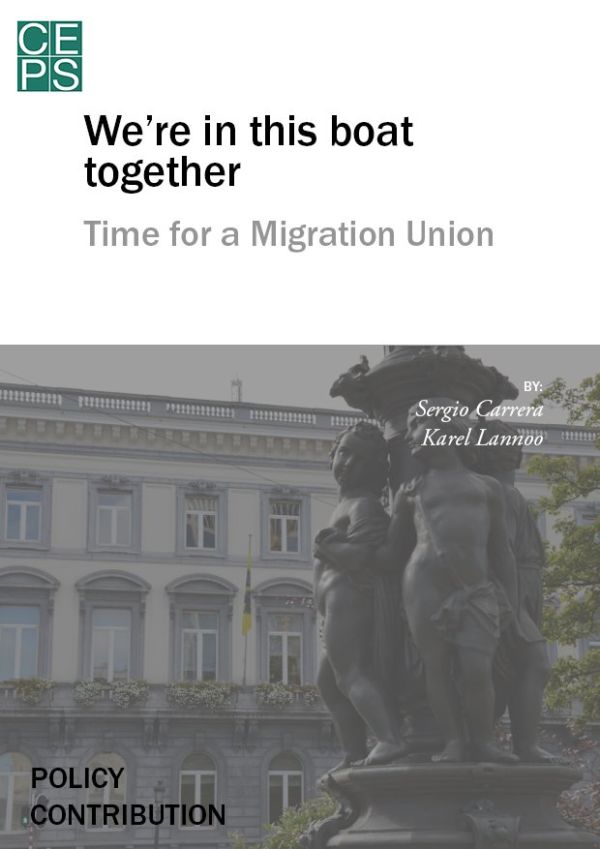Despite the political impasse reached among certain EU member state governments in their attempts to reform EU asylum policy, this Policy Insight argues that ‘we’re in this boat together’. The EU needs a Migration Union, with all that that implies. Furthering institutional centralisation in the areas of asylum and migration could benefit from the ‘lessons learned’ from the EU’s response to the eurozone crisis.
In the run-up to the European Council meeting of June 28th and 29th and looking ahead to the EU inter-institutional renewal slated to take place in mid-2019, this Policy Insight puts forward three main courses of action for a common EU policy approach on asylum and search and rescue (SAR) addressing the double gap in solidarity afflicting EU asylum policy.
The debate should move from ‘asylum quotas’ towards building an intra-EU institutional solidarity framework covering both asylum and SAR operations. A new EU Asylum Agency should be formed, tasked with implementing a permanent distribution model of asylum responsibility, according to a distribution key and the supervision and support of all EU member states’ reception systems. This initiative should be coupled with a reinforced role for the European Border and Coast Guard (Frontex) on SAR in the Mediterranean.
The practice of ‘offshoring’ asylum and SAR responsibilities to African countries presents deep challenges in terms of its practical feasibility as well as its respect for the rule of law. To return rescued people to unsafe environments, with the risk of arbitrary and inhumane detention, would incur liability for grave human rights violations before international and European instances. Such actions fall far short of securing a stable, long-term asylum policy and they make the EU highly vulnerable to and dependent on third countries.
Any way forward for the EU must be anchored in a solid EU institutional response to asylum and SAR, which would be accompanied by robust financial support from the Multiannual Financial Framework (MFF). The goal should be to establish a common European Border and Asylum Service (EBAS), bringing together under the same roof the responsibilities currently borne by Frontex and the European Asylum Support Office (EASO), thereby creating a fully-fledged EU civil service on asylum.
Sergio Carrera is Senior Research Fellow and Head of Justice and Home Affairs Unit at CEPS. Karel Lannoo is Chief Executive Officer at CEPS.














